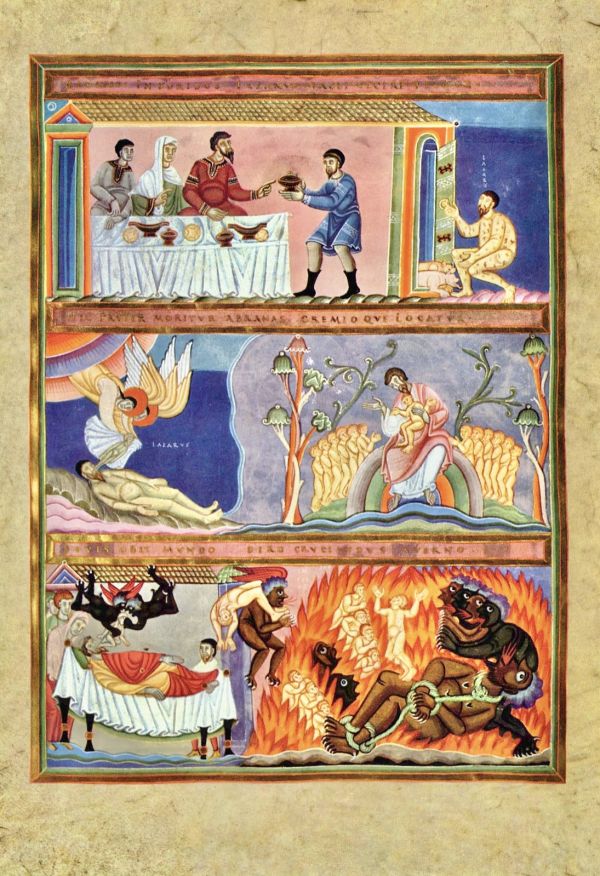External solution?
(Lk 16:19-31)
Today's Gospel raises a question of apparent obviousness: is it not perhaps in the natural order of things that in human society there are first and last, learned and ignorant, princes and subjects?
Even Leo XIII, Pope of the social encyclicals, recognized that «in human society it’s according to the order established by God that there are princes and subjects, masters and proletarians, rich and poor, learned and ignorant, nobles and plebeians; the obligation of charity of the rich and the landowners is to help the poor and the destitute» [mentality of an omission’ sin: it’s enough that they then do "charity"].
The position of the Lord is very very different.
According to Lk the rich man is not the Blessed by God, as the patriarchs of the First Testament were considered.
His sought-after clothing is only a metaphor for the inner emptiness and ephemeral he basks in - what will later be corroded by moths.
His gorging is a sign of an intimate abyss to be bridged - a sort of nervous hunger.
«Eli hezer»: «God helps»; He doesn’t forget, on the contrary He’s definitely on the unsteady’ side. Therefore, that form of "enjoying life" is giving up living completely.
The evangelist doesn’t specify that Lazarus was a good and responsible person: just a poor.
Nor does he affirm that the “Dives” was a total criminal: if the indigent stopped outside his door and nowhere else, it means that was remedying something there.
But at that time there was no cutlery and rich men cleaned their fingers with the crumb, then thrown on the ground; the miserable ate of this.
A dog's life, worse than insults. And ignored.
Radical evil, which was not in the individual acts, rather in the depths of being, and in the consequent global carelessness.
Inattention that tends to choose consensus and hierarchies as the ultimate backdrop to existence.
Therefore the question that the passage of Lk reiterates is not trivially moralistic: merits or faults, juridical or religious.
The question arises about humanity itself: diminished, reduced, arid, incapacitated; unable to articulate a deliberate reversal.
Inextricably linked to the already dug abyss.
The Gospel wants to stimulate us to reflect not on the theme of lawful almsgiving, but on warning, and the Communion of resources: on the meaning of unbridled wealth alongside poverty.
Involuntary misery is often considered a situation by now habitual, but this drama affects persons and entire peoples.
And how can we distract from the seduction of material goods?
Overcoming the lures of money and the craving for accumulation which generates social paralysis and devastating humiliation, is a true miracle.
And neither a prodigy nor a vision can do a miracle of conscience (vv.29-31).
Least of all a common religion, if it tended to sacralize and not interfere, to make positions persist; to be complicit in manifacturing poor and rich, gaining on both.
In short, to build the Kingdom and change the divided world, it’s only worth letting oneself be educated by the Word of God.
Intimate Seed and Germ, Event-Therapy, Energetic Spirit and Call: which introduces into the active and nuptial awareness of Love.
Logos that places us in the right position. Exception Warning; not external.
Founding Eros that already here and now reverses situations.
[Thursday 2nd wk. in Lent, March 20, 2025]












